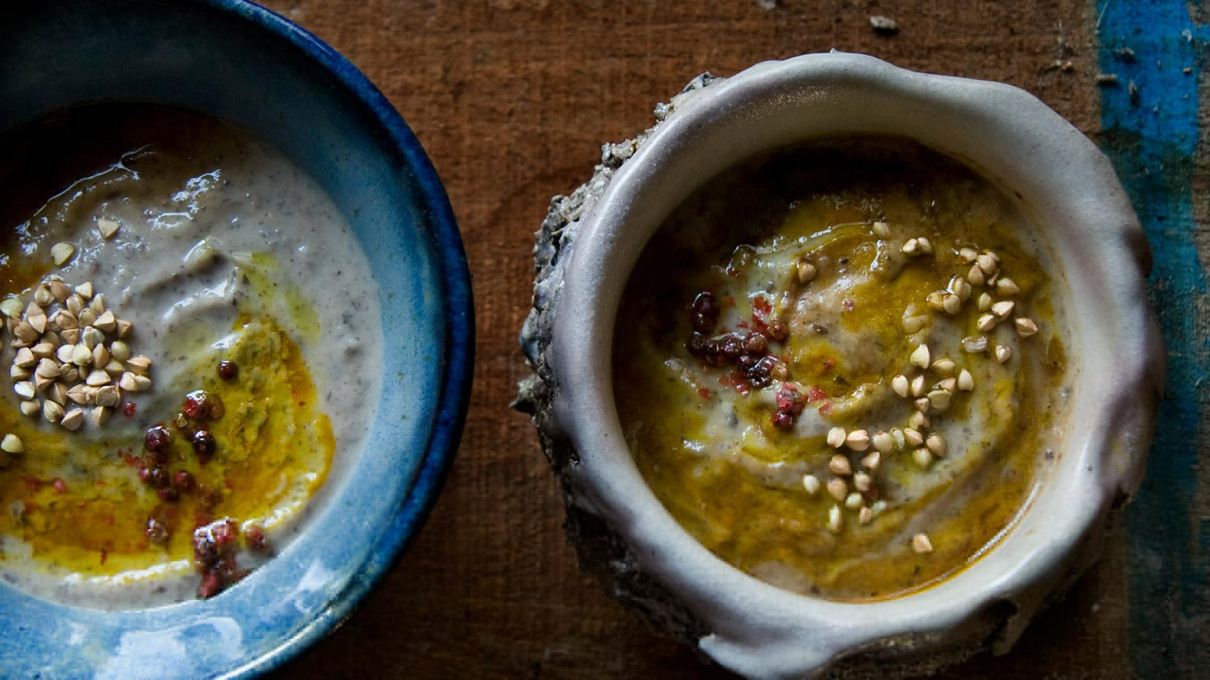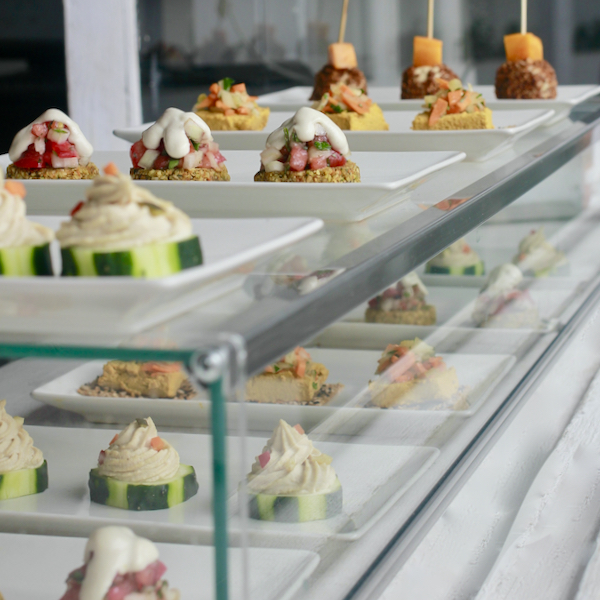 Azuki soup with coconut milk and turmeric oil. Recipe by Alf Mota, 2017.
Azuki soup with coconut milk and turmeric oil. Recipe by Alf Mota, 2017.
In February 2017 the Kushi Institute, the reference center for Macrobiotics since its origin in 1978, closed its doors. Is this the end of an era for Macrobiotic Cooking? We think so. The good news is that we are already witnessing a strong renewal trend in what we call Contemporary Macrobiotics.
During the last decade the interest in healthy cooking and plant-based diets have created an array of new healthy cooking trends. Many of them share the belief in organic products and showcase a really attractive cuisine both from visual and culinary points of view. This new plant-based cuisine has left behind the traditional vegetarian and macrobiotic cuisines that face the risk of being outdated. Is it possible to renew techniques, ingredients and concepts in Macrobiotics?
To talk about all this we visited Chef Alf Mota, one of the new voices in Macrobiotic cuisine. Alf Mota (Azores Islands, second half of the XX century) is the CEO of Macroseny ; chef and instructor of healthy cooking; personal therapeutic chef and ECOCHEF team member. Alf combines a strong background in Macrobiotics with studies in nutrition, therapeutic cooking, agroecology and communication.
We were so happy to visit him at his headquarters in the foothills of Montseny (Barcelona) and talk about the evolution of Macrobiotics and his work with the Energy Fusion Cuisine.
Conversation with Alf Mota. Quotidian Films, 2017.
This approach looks at the classic principles of Macrobiotics with new eyes: the proportions of food in the diet, the use of new ingredients and the incorporation of updated cooking techniques.
Many chefs with macrobiotic backgrounds such as Alf Mota, Holly Davies or Patricio García de Paredes are developing their own line of cuisine with local ingredients and contemporary concepts and adding them to a macrobiotic based structure.
Also, the same Kushi Institute, in its latest book of recipes (The One Peaceful World Cookbook), shows dishes with ingredients that were previously not recommended and adds macrobiotic versions of international dishes such as Pad Thai, Cous-cous or Risotto.
The culinary result looks much more attractive, fresh and updated. Perhaps it is necessary to transgress the limits in order to advance. Get away from the classic model, look at it from a distance and reshape it with respect but with updated tools and concepts. We love it!











